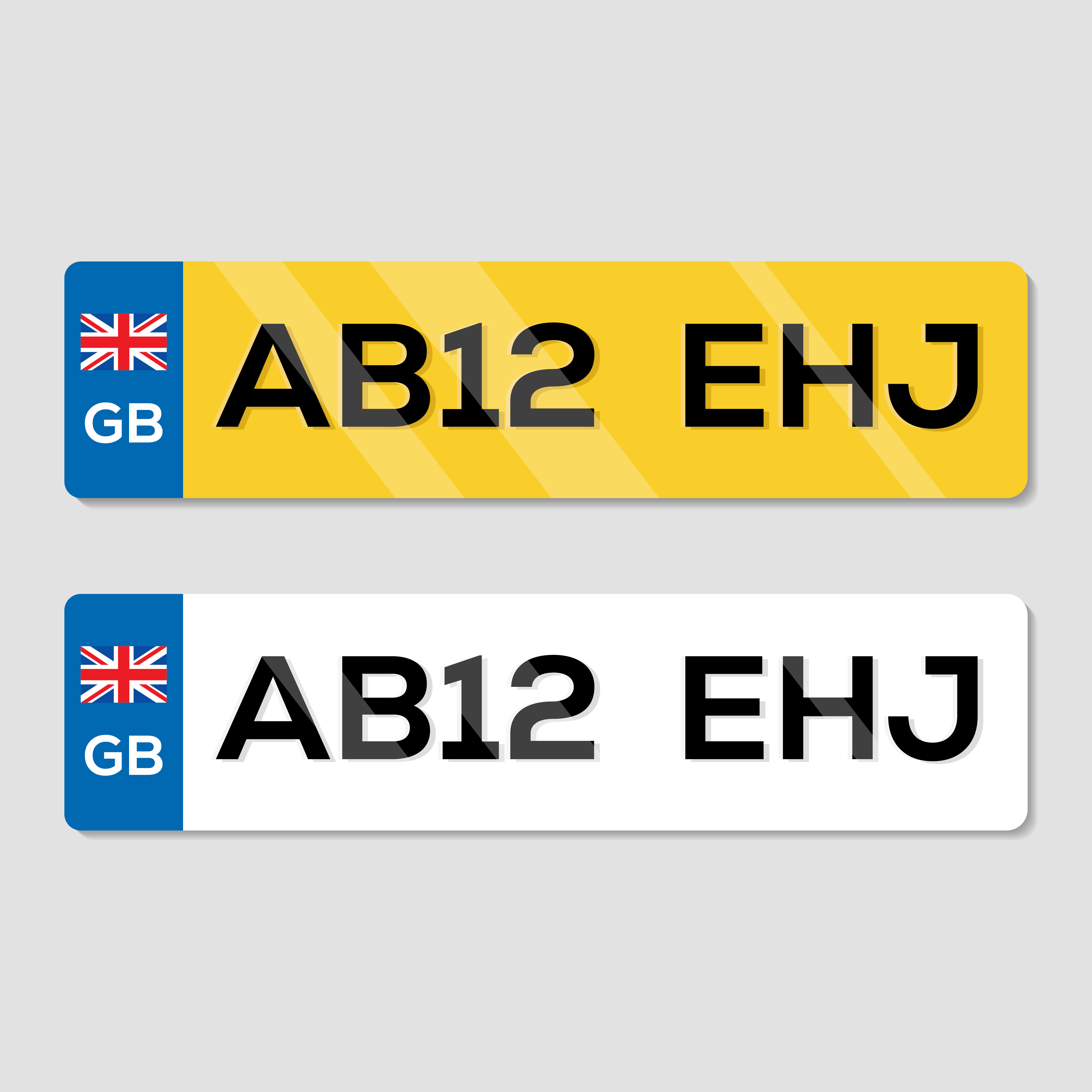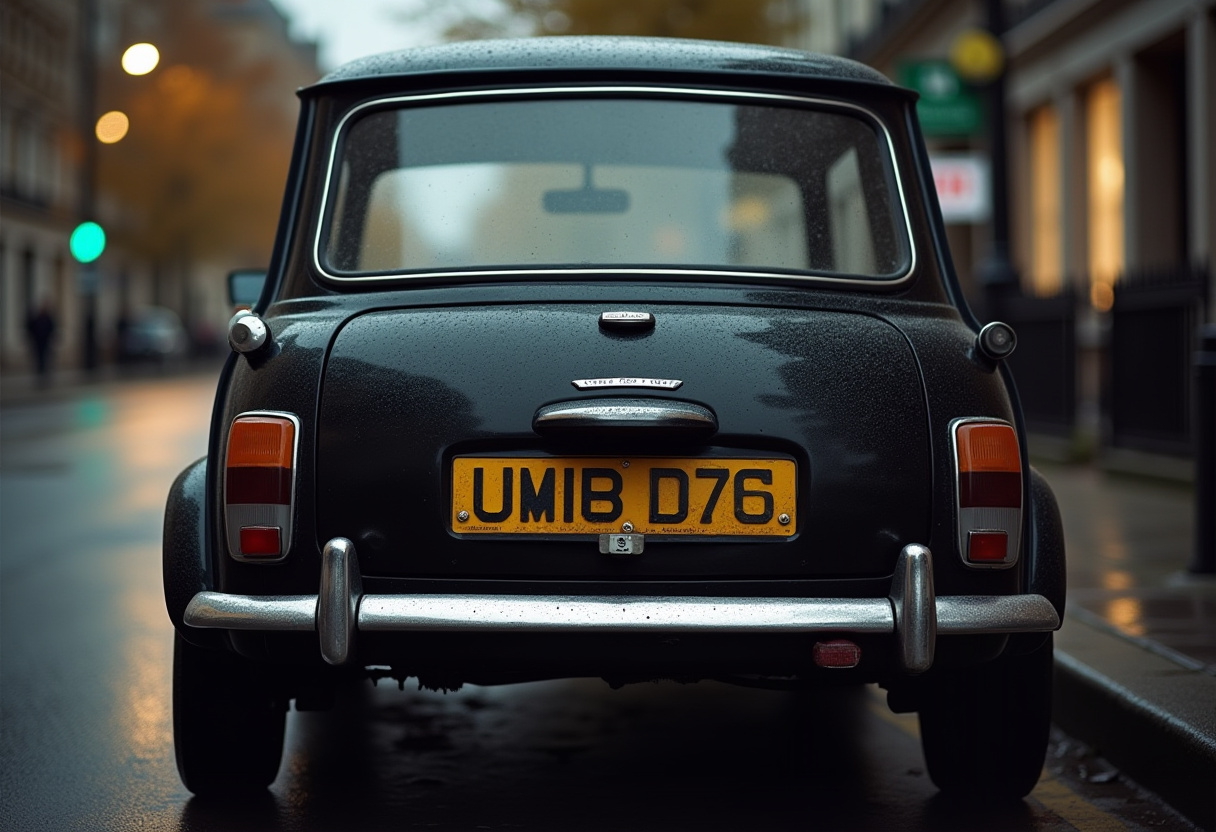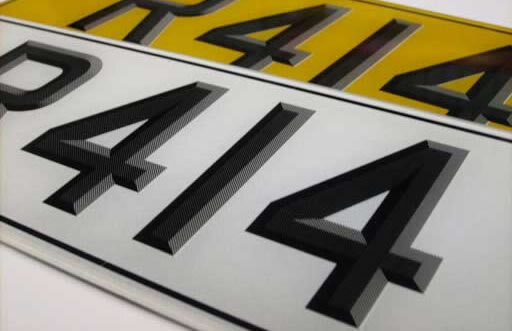Personalised number plates are becoming increasingly popular among car owners in the UK, allowing drivers to express their individuality and add a distinctive touch to their vehicles. Picture this: you’re driving with your DIY plate, only to see flashing blue lights behind you. A quick inspection reveals it’s non-compliant, turning your project into a huge mistake.
But while creating your number plate might seem like a fun DIY project, have you considered the potential risks? Non-compliance with UK regulations could turn this creative venture into an expensive mistake. This raises a major question: can you make your own number plate and register it?
Understanding the legality of a homemade number plate is essential for any driver considering this option. Regulations set specific standards for legal number plates in the UK, and non-compliance can result in penalties or even fines. In this article, we’ll look at the key rules for creating a compliant number plate, the potential risks of non-compliance, and why purchasing approved number plate fonts might be the safer option.
Legal Requirements for Number Plates

In the UK, number plates are subject to strict regulations set out by the Driver and Vehicle Licensing Agency (DVLA). These rules establish uniformity and support vehicle identification, particularly for law enforcement and safety purposes.
All number plates must meet specific standards for size, spacing, and reflectivity. For example, the spacing between characters and margins must follow the guidelines, and the plate must be made from reflective material to remain visible at night or in poor weather. Additionally, plates need to display a British Standard (BS AU 145e) marking, which certifies their compliance with durability and visibility requirements.
Failing to meet these standards can have serious consequences, from failing an MOT test to receiving fines. Buying compliant number plates is a legal necessity and plays a big role in road safety.
Guidelines for Making Your Own Plate
While it is technically possible to create your own number plate, meeting the stringent legal requirements is challenging. The DVLA number plate regulations mean that all plates stick to specific standards, including size, spacing, visibility, and materials. Any deviation from these rules can result in penalties.
For example, homemade plates must use approved reflective materials and follow the BS AU 145e certification for durability and legibility. The font used must be the standardised Charles Wright font, which helps readability for law enforcement and automatic recognition systems. with precise character sizing and spacing. These specifications make it difficult for individuals to replicate the quality of plates provided by registered suppliers.
One of the most common errors in creating plates at home is incorrect spacing or using unauthorised materials, which can render the plate illegal. This makes the idea of crafting plates at home more difficult and riskier than it initially seems.
Approved Materials and Fonts

These must be made using specific plate materials and feature legal fonts that adhere to legal requirements. Plates are required to use reflective materials, such as durable acrylic plastics, to provide visibility in all conditions. The BS AU 145e certification guarantees compliance with durability and legibility standards, helping drivers avoid legal issues. The size and spacing of the font are also standardised, leaving no room for artistic variations.
Understanding DVLA Regulations
The DVLA is responsible for regulating and overseeing the standards for number plates in the UK. These regulations are in place to maintain consistency and make all plates clearly readable and traceable.
To meet these standards, number plates must be sourced from registered suppliers who comply with DVLA guidelines. Registered suppliers provide plates that are pre-certified to meet the necessary specifications, such as size, spacing, and reflectivity. Additionally, when a new plate is made, it must be registered to the vehicle it is intended for, linking it directly to the owner. Recent updates to DVLA regulations have introduced stricter requirements under the BS AU 145e standard. These updates highlight the need to purchase from approved providers who follow the latest regulations.
Risks of Non-Compliant Plates
Using non-compliant number plates poses significant risks. Failing to meet legal standards can lead to MOT failures, making your vehicle unroadworthy until the issue is resolved. Additionally, being pulled over by the police is a common consequence, which could result in fines or further legal action.
Non-compliant plates can also impact the resale value of your vehicle. Prospective buyers may hesitate if the car doesn’t meet legal requirements, or they may see it as a sign of improper maintenance. Ultimately, the risks and long-term costs of non-compliance outweigh any perceived savings from homemade plates.
Penalties for Homemade Plates

Using illegal or homemade number plates carries significant penalties in the UK. Drivers caught using non-compliant plates can face fines of up to £1,000. For example, a car enthusiast decided to create his number plate to save money and showcase his style. However, his plate failed inspection during a police check due to incorrect spacing and missing the BS AU 145e certification. The result? A £1,000 fine and an MOT failure, leaving his car unroadworthy until he replaced the plate.
This costly mistake highlights the risks of cutting corners. Avoid these issues by choosing compliant, professionally made plates from trusted suppliers like Demon Plates. In addition to the financial cost, vehicles with improper plates can have their MOT status invalidated, leading to further complications and expenses.
Insurance policies may also be affected. If an accident occurs and your vehicle’s number plates don’t meet legal standards, insurers could refuse to cover claims, leaving you personally liable for damages. From fines to failed inspections, the penalties serve as a strong deterrent to using illegal plates.
Alternatives to Making Your Own Plate
Rather than risking fines or legal complications, purchasing number plates from DVLA-approved suppliers is a simple and reliable solution. Approved suppliers also provide customisation options that allow you to personalise your plates while staying fully compliant with legal requirements. Tools like the custom number plate builder or a show plate builder make it easy to create a design that suits your preferences. This option avoids the risks of homemade plates while delivering a high-quality, legal product.
Creating your number plate may seem appealing, but the risks of non-compliance—such as fines, MOT failures, and insurance issues—make it a costly gamble. Instead, opt for the safer, simpler, and more cost-effective solution: professionally made plates from trusted DVLA-approved suppliers.
At Demon Plates, we offer more than just compliance. With fast delivery times, high-quality reflective materials, and intuitive customisation tools like our custom number plate builder, we make it easy to design legal plates matched to your style. Whether you need plates for everyday use or a showpiece for your car meet, our plates are crafted to meet the latest BS AU 145e standards, giving you peace of mind and a touch of personality.
Don’t risk it— contact us to find out about our range of professionally crafted number plates today, and enjoy customisation that’s stylish, legal, and hassle-free.
